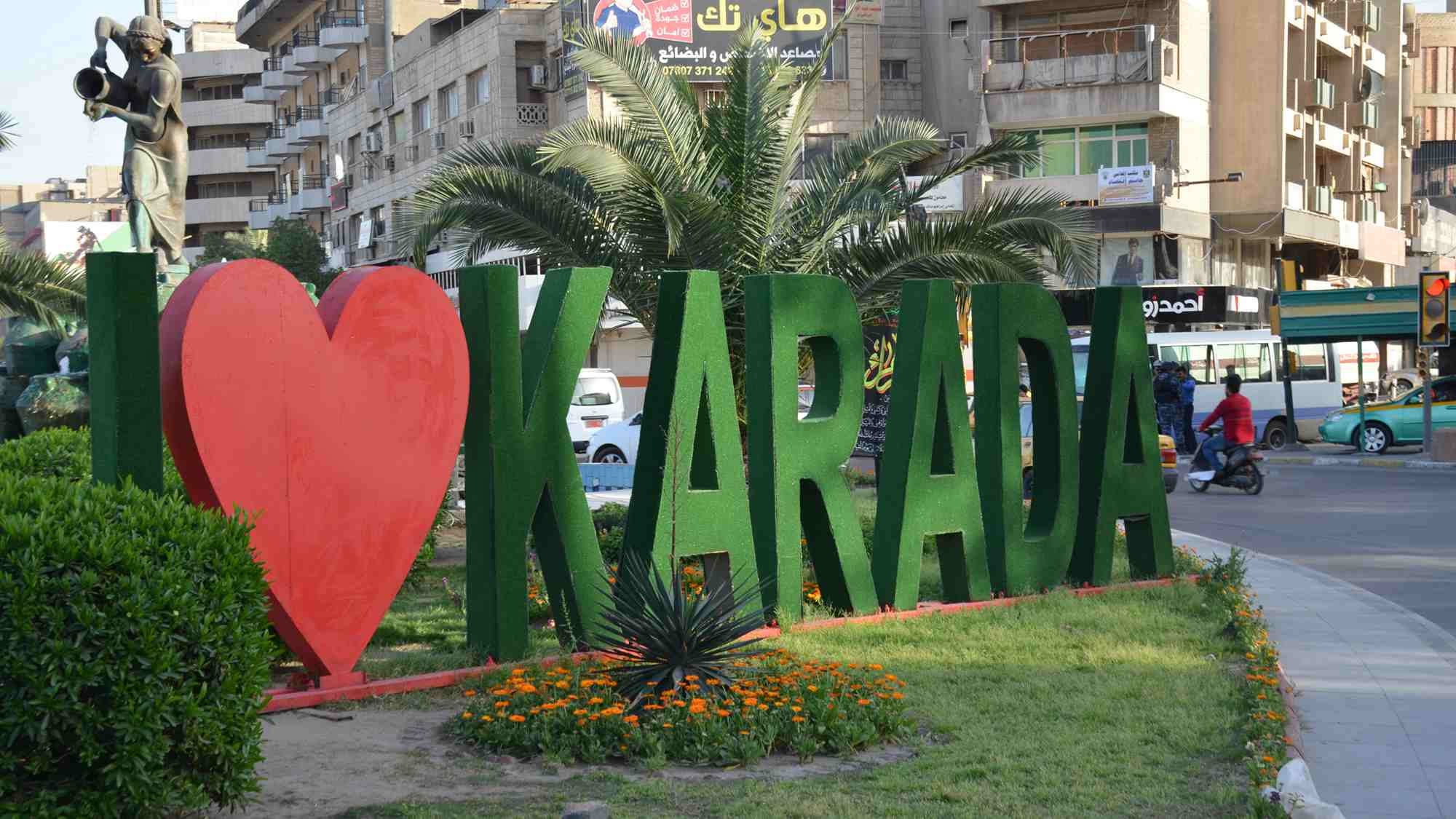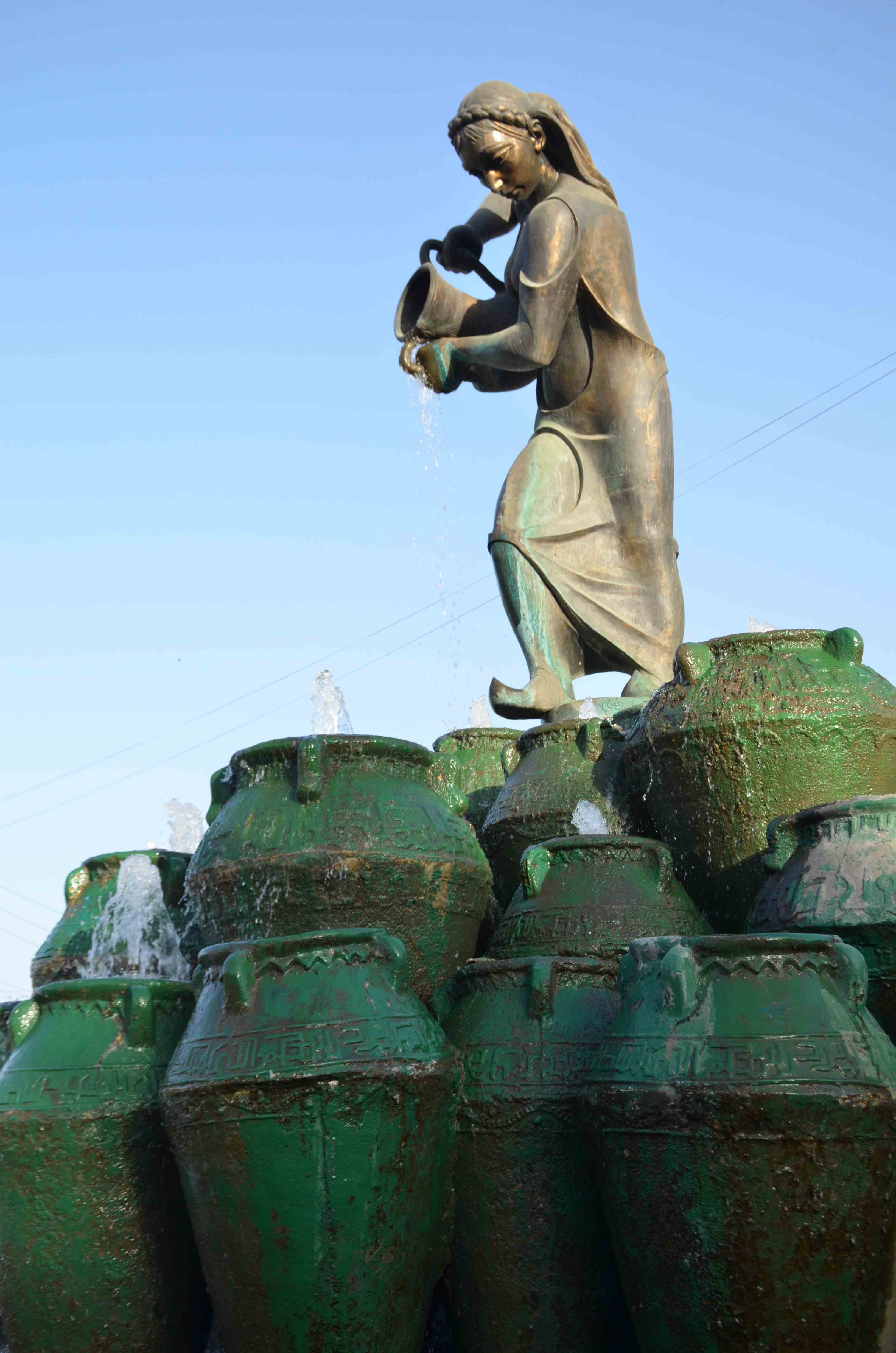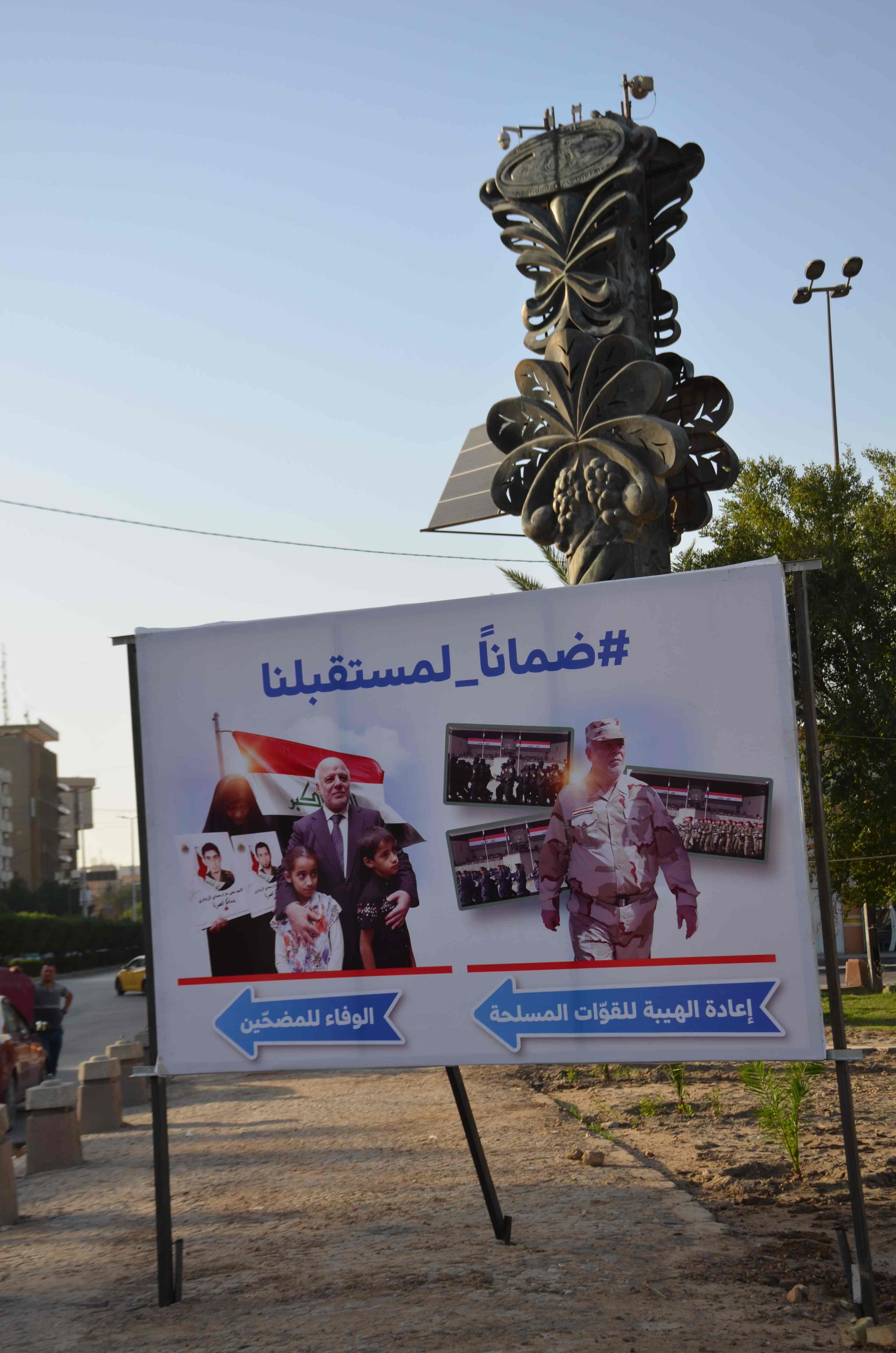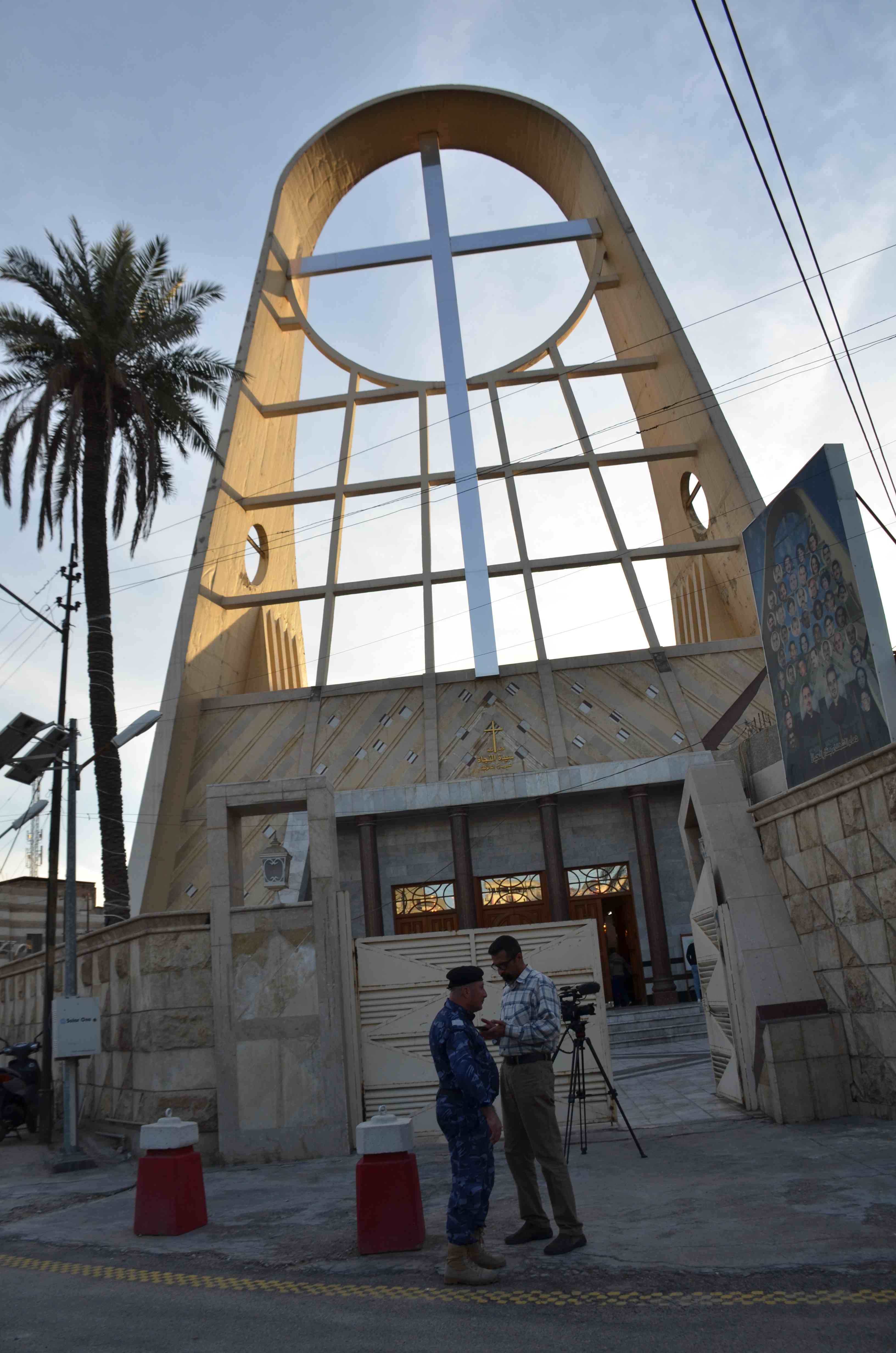
Politics
17:40, 24-Mar-2018
Reporter's notebook: I love Karada
By Tadek Markowski

By my reckoning it’s getting on towards five in the afternoon and easily still 30 degrees in the shade, thankfully the sun’s intensity is waning, casting shadows across graceful Kahramana, perpetually pouring water into stone vases.
Her statue, which has its origins in the tale of ‘Ali Baba and the Forty Thieves’, marks the entrance to the Karada district of Baghdad. In front of the statue is a large sign that reads, “I Love Karada”, with the word love represented by a big red heart. Occasionally pedestrians stop to take a smartphone selfie, as the late afternoon adds extra vigor to the splashing water. Karada wasn’t always this peaceful or loved.

The statue of Kahramana drowning the forty thieves is a landmark sculpture in Baghdad. /CGTN Photo
The statue of Kahramana drowning the forty thieves is a landmark sculpture in Baghdad. /CGTN Photo
Eight years ago, six jihadists forced their way into the nearby ‘Our Lady of Salvation’ Catholic church, and when Iraqi commandos stormed it to end the siege, they detonated explosives killing 58 people and wounding nearly 80 others. The massacre sparked global condemnation and introduced the world to a pernicious new threat in Iraq – ISIL.
ISIL is now gone and the church is still there, its congregation substantially smaller and understandably nervous. We visited on a Sunday evening, negotiating two security checkpoints to reach the modest building hemmed-in by high concrete blast walls. Our request to film the service was politely declined.

Iraqis want Prime Minster Haider al-Abadi to tackle the country's endemic economic problems and, at the same time, bring security. /CGTN Photo
Iraqis want Prime Minster Haider al-Abadi to tackle the country's endemic economic problems and, at the same time, bring security. /CGTN Photo
Outside we met Yousef, a member of the close knit Christian community, who was pessimistic about the future of his faith in a country so torn by sectarian violence. “According to my belief we should have faith and hope, but if you listen to the political news, no, it’s hopeless.” He says the word ‘hopeless’ in English as if to drive home the point that a scar, incorporated into the Church’s exterior as a visible reminder of the atrocity in 2010, is a hurt that might not heal.
Back at Karada’s famous traffic circle, on the fringes, is a modest poster depicting Iraqi PM Haider al-Abadi, photographed in various settings. In one he is the wise fatherly figure flanked by children in another the nation’s robust protector dressed in military fatigues.
The caption reads ‘For a Guaranteed Future’. The poster aptly portrays the two key roles the Iraqi leader is expected fulfill. On the one hand he must make shrewd political decisions, addressing growing concerns about corruption, unemployment, a lack of services, the country’s crippled infrastructure and an economy almost exclusively reliant on crude oil.

Our Iraqi fixer negotiates access to ‘Our Lady of Salvation’ Catholic church in Karada. On the building's façade an angular scar has been fashioned as a reminder of the 2010 massacre. /CGTN Photo
Our Iraqi fixer negotiates access to ‘Our Lady of Salvation’ Catholic church in Karada. On the building's façade an angular scar has been fashioned as a reminder of the 2010 massacre. /CGTN Photo
On the other hand, he’s expected to rout the remnants of ISIL, rein in a complex web of religious militias and build a unified security apparatus to keep the peace. In the street and boardrooms many believe al-Abadi possesses the requisite political nous to negotiate the minefield that is Iraqi politics, but what they question is whether he has the visceral wherewithal to stare down those powerful players pursuing their own agendas.
Abbas Al-Bayti, who belongs to the PM’s ‘Victory’ political bloc thinks he can. “There is a level of corruption that exists, but there are procedures in place to deal with that, but these actions fall short of preventing corruption reaching the national purse. That’s why (after the next elections) the next order of business will be aimed at countering that corruption.”
As we wrapped-up filming at Karada, one passer-by comments that clever Kahramana only had to deal with forty thieves, Al-Abadi has to contend with a 328-strong Council of Representatives in the Iraqi parliament. That’s assuming he is returned to the top job come May when Iraqis will head back to the polls in what will only be the country’s third democratic election.
As an interesting aside to the story of Kahramana, the name of Ali Baba is no longer celebrated in the Iraqi capital like it once was. During the wave of looting of government buildings that followed Saddam Hussein’s ousting, American troops took to using it in a pejorative sense. For many here the ‘Arabian Nights’ tale has been tarnished for good.
6301km

SITEMAP
Copyright © 2018 CGTN. Beijing ICP prepared NO.16065310-3
Copyright © 2018 CGTN. Beijing ICP prepared NO.16065310-3